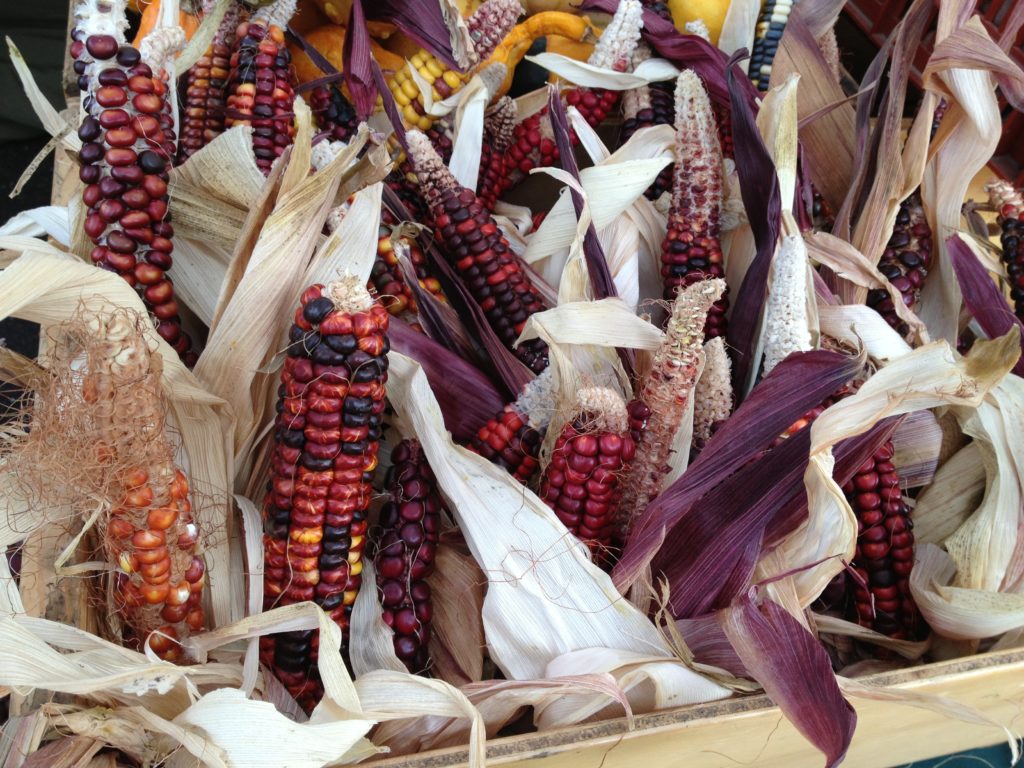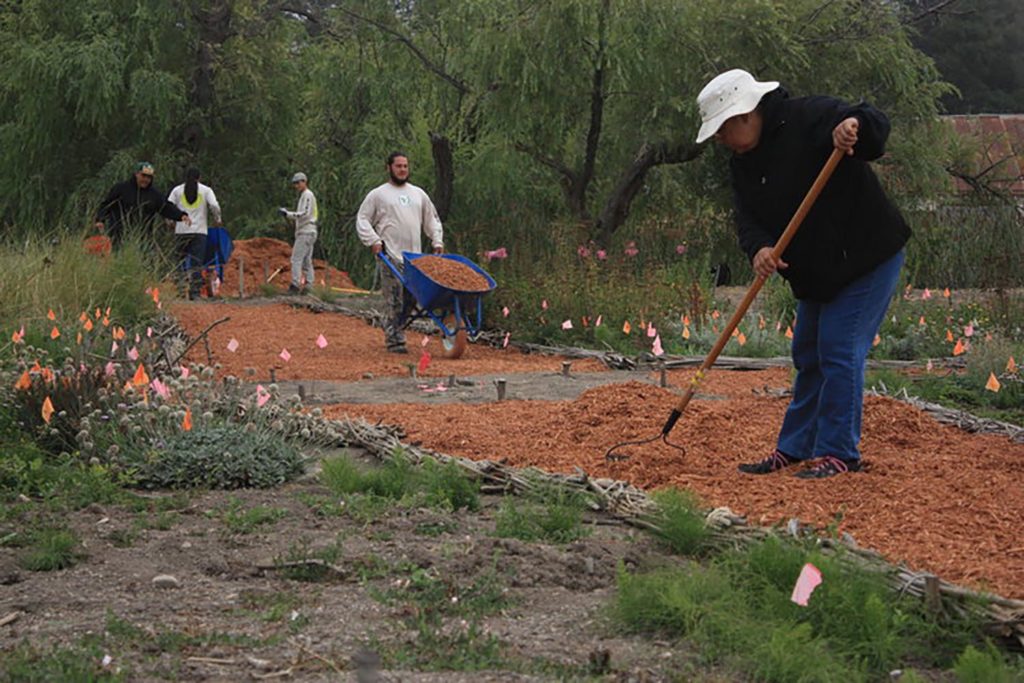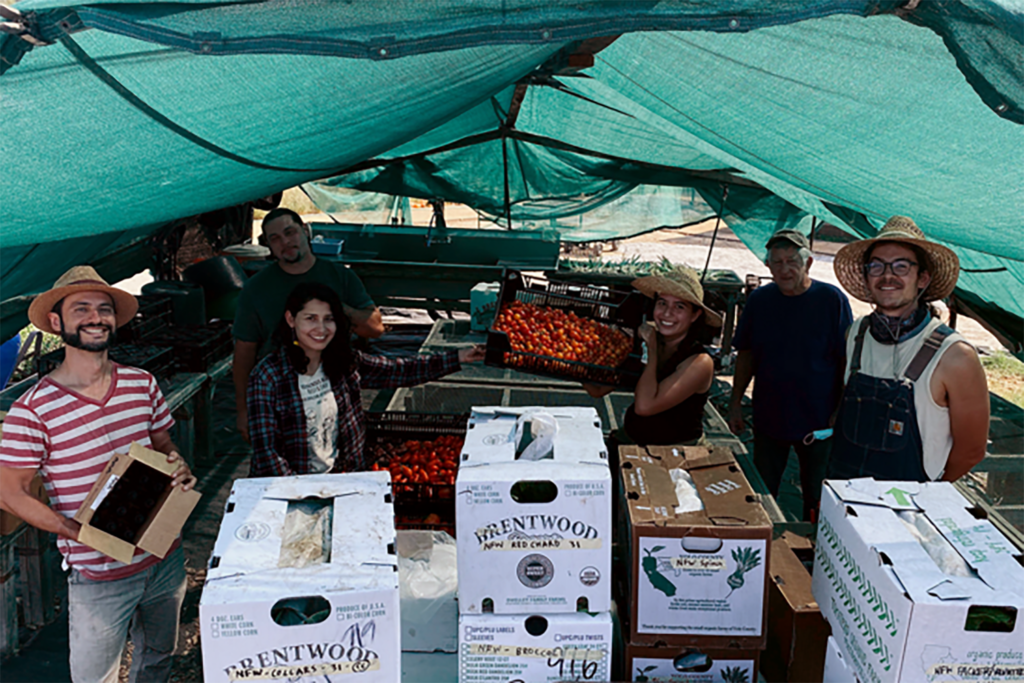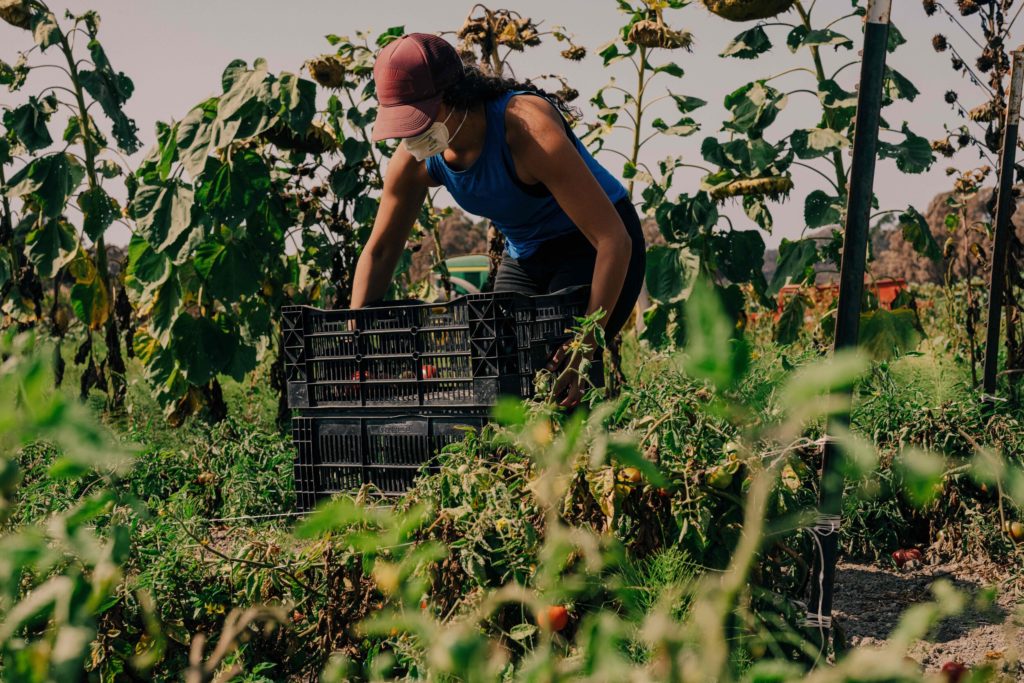Support These Indigenous-Led Efforts to Preserve Traditional Foodways on Ohlone Land
Selina Knowles, Communications Coordinator
October 6, 2022

What we now also know as San Francisco and the greater Bay Area is unceded Ohlone territory, where Indigenous people have lived and stewarded the land for thousands of years. Upon Spanish invasion in the 1700s, Indigenous people across many culturally and politically distinct territories were universally treated with brutal colonization and genocide by European settlers. This resulted not only in devastating loss of life, but also forced erasure of language, culture, and food sovereignty.
Now in the Bay Area, Indigenous-led efforts are reclaiming land and revitalizing traditional culture, including stewardship and food sovereignty. In honor of Indigenous People’s Day on October 10, here are a few local efforts you can learn about, get involved with, and support throughout the year.

The Amah Mutsun Land Trust and Stewardship Programs
The Amah Mutsun ancestors, collectively referred to by many as “Ohlone,” are the indigenous peoples of South San Francisco and north Monterey Bay Area. They are working on conserving and restoring indigenous cultural and natural resources, stewarding lands and waters, and researching and teaching the ways of nature. The Amah Mutsun Land Trust engages youth through their Native Stewardship Corps and Native Youth Stewardship Camp, where they focus on environmental education. They also tend to several native plant gardens. You can volunteer for garden work days here and subscribe to their e-letter here.
The Association of the Ramaytush Ohlone
The Association of Ramaytush Ohlone (ARO) represents the interests of the Yelamu, the original peoples of the San Francisco Peninsula. Although there are no known descendants of the Yelamu, descendants of the Ramaytush Ohlone peoples were born in what is now San Francisco County. Working with other community organizations, the ARO pursues several objectives, including the rematriation (reclamation and restoration) of their ancestral homeland, cultural revitalization, and ecological restoration. If you are non-indigenous and living along the San Francisco Peninsula in San Francisco County, in San Mateo County, you can make a one-time or recurring contribution to the Yunakin Land Tax. (Comparable to paying rent or a mortgage, which we pay to gain access to living spaces, voluntary land taxes recognize our access to stolen Indigenous land.)
Cafe Ohlone and mak-‘amham
Vincent Medina (East Bay Ohlone) and Louis Trevino (Rumsen Ohlone) channel their focus on sustaining traditional Ohlone culture into mak-‘amham (Chochenyo for “our food”) and Cafe Ohlone. In September 2017, they created mak-‘amham, a community organization that has formalized a series of programs: cooking classes, gathering trips, dinners for elders, weekly language classes, and cultural sessions. In September 2018, they created Cafe Ohlone, the only Ohlone restaurant in the world, now with two locations in Berkeley. Cafe Ohlone provides a physical space for Ohlone people to be represented in the culinary world and educates the public about the land’s original and continuous inhabitants. Make a reservation at Cafe Ohlone here.

The Cultural Conservatory Native Foodways
The Cultural Conservatory is a Native-led nonprofit organization based in the San Francisco Bay Area, with headquarters on unceded Ohlone land and their land base in the sovereign territories of Coast Miwok and Southern Pomo peoples. Founded in 1985, the Cultural Conservatory’s mission is to protect and restore Indigenous cultures, empowering them in the direct application of traditional knowledge and practices on their ancestral lands. Among several initiatives, their Native Foodways Program seeks to heal the harm and disruption caused by violent colonization. They steward land, grow Native heirloom foods and seeds, and provide intertribal and intergenerational gathering spaces for community members to teach, listen, learn, dream, and reconnect. Learn more here.
Deep Medicine Circle
The Deep Medicine Circle is a nonprofit organization dedicated to repairing relationships that have been fractured due to colonialism. The Indigenous-led collective of farmers, elders, physicians, healers, herbalists, ecologists, educators, youth, storytellers, and artists channels their efforts into five main initiatives: Farming is Medicine, Heal the Healers, Ecological and Social Restoration, Storytelling and Arts, Land Stewardship Fellowship. They tend to two farms in unceded Ohlone territory, the Rooftop Medicine Farm in the Territory of Huichin (Oakland) and the 38-acre Te Kwe A’naa Warep farm in Ramaytush territory, in San Gregorio. Learn more about Deep Medicine Circle and their volunteer opportunities.

The Regenerator Program at Cascade Ranch
Cascade Ranch is a neighboring 418-acre farm just north of Pie Ranch in the ancestral homeland of the Quiroste people of whom there are no known descendants. The Amah Mutsun Tribal Members partner with Pie Ranch to steward the land in honor of the Quiroste people. Under the leadership of Leonard Diggs, the Regenerator Program helps new farmers take the next step in their careers, with an emphasis on providing equitable economic and wealth-building opportunities to under-resourced, early-stage farmers and ranchers. You can learn more about their projects here and sign up for volunteer opportunities here.
Sogorea Te’ Land Trust
Sogorea Te’ Land Trust is an Indigenous women-led organization based in Huchiun, in unceded Lisjan territory, what is now known as the East Bay. Through the practices of rematriation, cultural revitalization, and land restoration, Sogorea Te’ Land Trust is working to heal and transform the legacies of colonization, genocide, and patriarchy. They describe rematriation as a practice that “weaves traditional and cultural knowledge back in harmony with the land.” Learn more about their rematriation efforts and land in rematriation here. If you are non-indigenous and living on the Confederated Villages of Lisjan’s territory (Alameda, Contra Costa, Solano, Napa, and San Joaquin counties), you can contribute to the Shuumi Land Tax to support Sogorea Te’ Land Trust’s work.
Wahpehpah’s Kitchen
Chef and owner Crystal Wahpepah is an enrolled member of the Kickapoo nation of Oklahoma, and she was born and raised in Oakland, on Ohlone land. At her restaurant Wahpehpah’s Kitchen in Fruitvale Village, Crystal is reclaiming Native foodways that were forcibly erased by colonialism and educating others about the health benefits of these foods. On her menu, she features ingredients such as game protein and blue corn sourced from the Ute tribe of Colorado. You can learn more about Crystal and the Kickapoo people here, and you can make a reservation at the Oakland restaurant here.
To learn more about Indigenous foodways, read about foods native to the Americas and what it means to decolonize your diet.
Topics: Food justice
